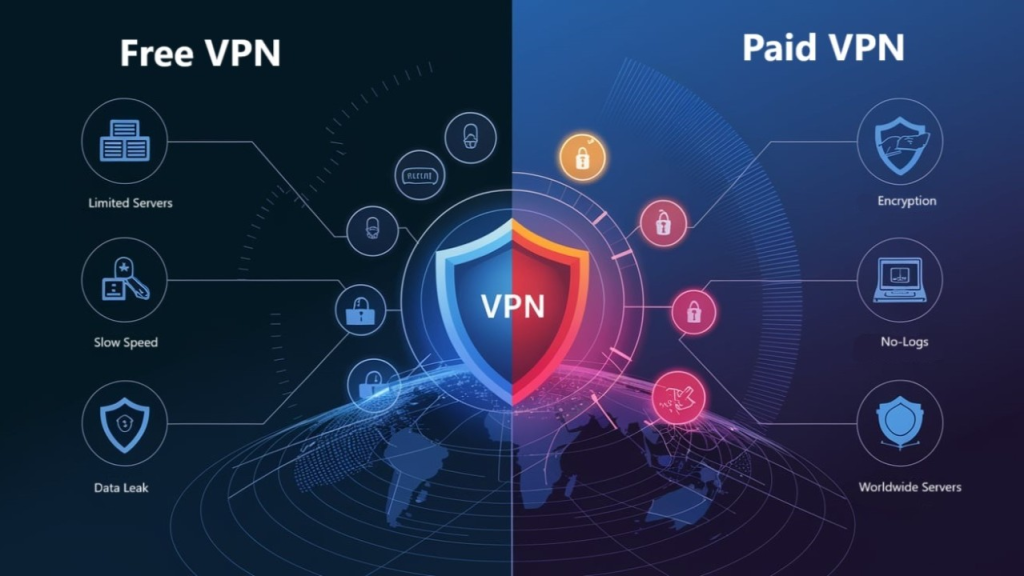VPN (or Virtual Private Network) offerings create a stable, encrypted connection between your laptop and a VPN server in every other region. That kind of stable connection is a profitable funding for all people who want to wrap their facts in an extra layer of privacy and security, especially when connecting to public Wi-Fi networks. But a VPN is not a magic bullet for Internet safety and received’t make you nameless online.
For our manual to the high-quality iTop VPN services, we talked with Internet protection experts, together with the data security team at The New York Times. We observed a commonplace thread of their advice: Any performance or protection function is profitable only if the organization that gives it’s far straightforward—that’s the principle standards we used whilst considering which offerings to suggest. But before you sign on for a VPN, it’s well worth understanding how a iTop VPN works and thinking about if a VPN is even the right tool for the process.
Free VPN Review
We often take a look at every free VPN we review. If a provider offers both free and a paid variations of their apps, we are able to often check both variations as a part of the same overview.
In other words, we put unfastened VPNs via the same genuine checking out system we follow to paid VPN offerings. We check for pace, safety, unblocking (such as streaming), and torrenting. We examine every privateness and logging policy in element, as well as assessing a VPN’s ease of use and reliability.
How We Use Free VPNs
When comparing a free VPN, the principle things we recognize are safety and privacy. In other phrases, we want to be as sure as viable that the VPN is not logging consumer records or promoting it to outside events, and we want to ensure that the encryption the VPN employs is as much as industry standards. Accordingly, we most effectively recommend no-cost VPNs that prioritize privacy and are audited frequently by using reliable 1/3 events.
We test zero-dollar VPNs with the same rigor as paid alternatives, checking for leaks, making sure privacy functions like kill switches work nicely, poring over privateness regulations and walking over 250 character net velocity exams. We evaluate how useful the unfastened VPN is for the average user, in a practical experience. Is it fast enough for trendy browsing? Does it allow for streaming? Does it have facts or usage limitations? An accurate loose VPN is secure to use and is truly useful as it does not impose overbearing barriers that render it essentially ineffective as a VPN, like extraordinarily restrictive month-to-month fact allowances.
The Key Features of a Safe Free VPN

Security
Strong encryption through the AES-256 cipher and use of secure VPN protocols like OpenVPN or WireGuard.
A VPN kill transfer to maintain your IP is hidden at some point of surprising VPN connection interruptions. No IP or DNS leaks throughout all applications.
Privacy
A privateness-focused logging coverage. A secure loose iTop VPN needs to now not track or save any in my opinion identifiable records, consisting of your real IP cope with or the websites you visit. It’s even higher if this policy has been tested via expert audits or through actual activities like server seizures or court cases.
Company registered in a privacy-targeted use of a and not using records retention laws. A secure jurisdiction, combined with an established no-logs policy, is the appropriate combination.
Speed
Reasonably rapid and consistent speeds across its loose iTop VPN servers. This consists of connections to close by as well as ways away server locations.
A moderately-sized server network, with unfastened VPN servers placed in a numerous range of countries across the world. This permits for suited speeds regardless of which users are connecting from.
Device Compatibility
Native apps for Windows, macOS, iOS and Android smartphones and tablets.
Chrome and Firefox VPN extensions, a local app for Fire TV Stick, and router setup functionality are all useful additions that enhance a VPN’s rating. However, they’re now not vital features for an amazing loose iTop VPN.
Data Usage Limitations
Most secure unfastened VPNs restrict the quantity of statistics you can use every day or month. Anything above 1GB consistent with month is acceptable, however the very great unfastened VPNs provide 10GB according to month or no bandwidth limits at all. Consider how many records you think you’ll need, and select thus.
Free vs Paid: Limitations of Free VPNs

Not every unfastened VPN is dangerous. Certain free VPNs are excellent for small and precise obligations like using public WiFi securely, briefly changing your IP deal with, or unblocking geo-restrained films for a few hours.
However, it simply isn’t feasible to fit top class VPN free services absolutely at no cost. You’ll almost constantly be restricted by means of numerous factors such as month-to-month information caps, slower speeds, torrenting regulations, and inferior streaming abilities.
Below is a info of the maximum not unusual barriers of loose VPNs that you received’t locate in first rate paid VPN services:
Final Thoughts
A iTop VPN is a provider that allows you to browse the internet with extra privacy and protection without charging a subscription rate. It generally encrypts your net connection, shields your IP cope with, and allows you to get admission to the content you join at home throughout your travels. However, these services regularly include obstacles, including data caps, fewer server places, and slower speeds compared to their paid opposite numbers, and might even impose deadlines on use.
